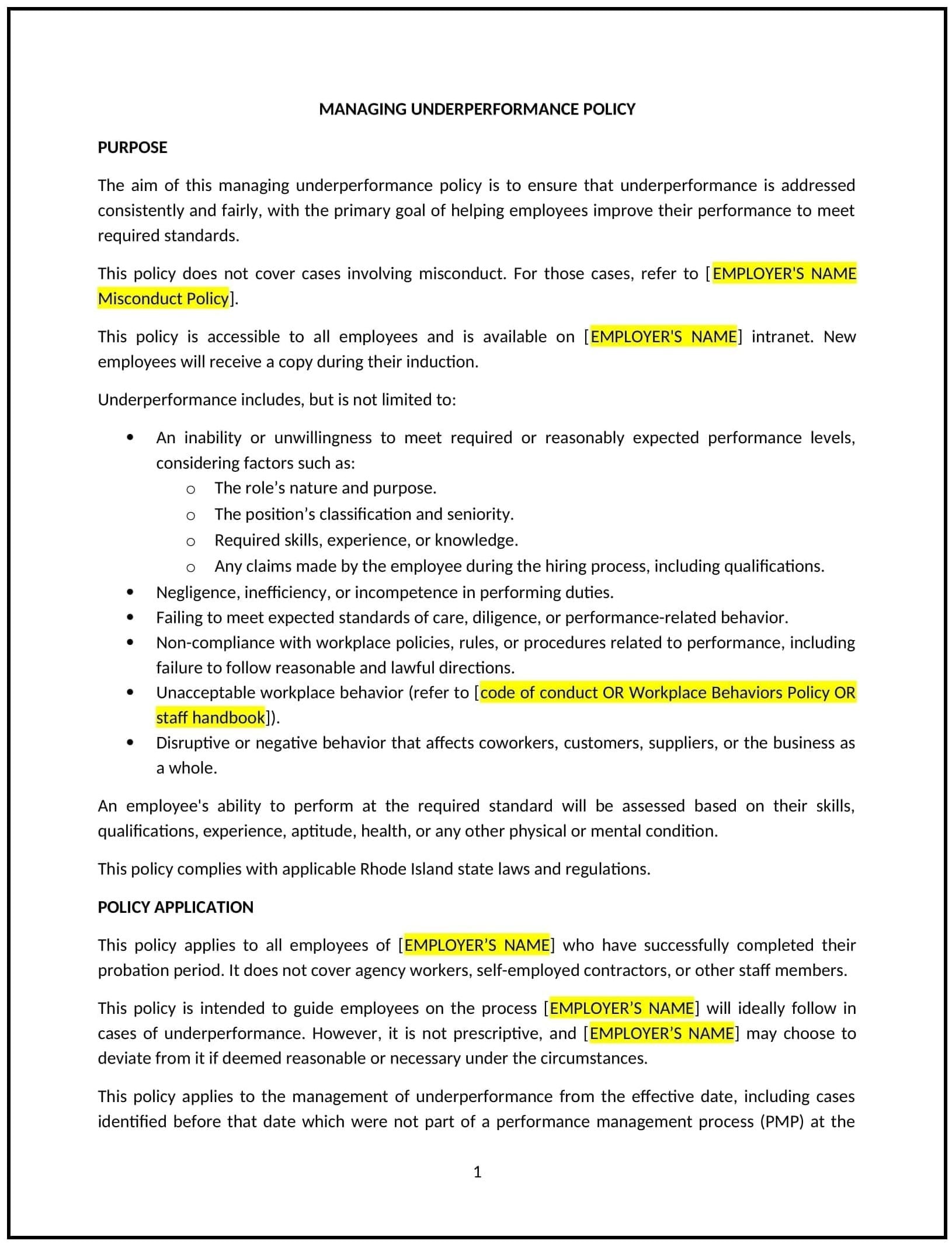Managing underperformance policy (Rhode Island): Free template
Got contracts to review? While you're here for policies, let Cobrief make contract review effortless—start your free review now.

Customize this template for free
Managing underperformance policy (Rhode Island)
This managing underperformance policy is designed to help Rhode Island businesses address employee performance issues effectively. It outlines procedures for identifying, documenting, and improving underperformance.
By adopting this policy, businesses can maintain productivity, support employee development, and address performance issues fairly.
How to use this managing underperformance policy (Rhode Island)
- Define underperformance: Clarify what constitutes underperformance, such as missed deadlines or poor-quality work.
- Establish identification process: Outline steps for identifying underperformance, including regular performance reviews.
- Set improvement plans: Provide guidelines for creating performance improvement plans (PIPs) with clear goals and timelines.
- Document issues: Record performance concerns, discussions, and improvement efforts to maintain transparency.
- Train managers: Educate supervisors on addressing underperformance constructively and consistently.
- Monitor progress: Regularly review employee progress during improvement plans and provide feedback.
- Review and update: Assess the policy annually to ensure it aligns with evolving business needs and legal standards.
Benefits of using this managing underperformance policy (Rhode Island)
This policy offers several advantages for Rhode Island businesses:
- Maintains productivity: Addresses performance issues promptly, minimizing disruptions to workflow.
- Supports employee development: Provides employees with opportunities to improve and succeed in their roles.
- Reduces turnover: Helps retain employees by addressing issues constructively rather than resorting to termination.
- Ensures fairness: Establishes a consistent process for addressing underperformance, reducing bias or favoritism.
- Aligns with best practices: Offers a structured approach to managing underperformance, enhancing workplace culture.
Tips for using this managing underperformance policy (Rhode Island)
- Communicate the policy: Share the policy with employees and include it in the employee handbook.
- Provide training: Educate managers on addressing underperformance constructively and consistently.
- Monitor compliance: Regularly review performance improvement plans to ensure adherence to the policy.
- Address issues promptly: Take corrective action if underperformance is not addressed or improvement plans are ineffective.
- Update regularly: Assess the policy annually to ensure it aligns with evolving business needs and legal standards.